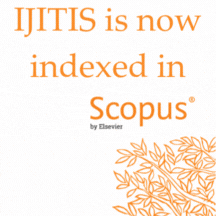On Social Media Addiction and Negative Effects in Southeast European University Students During the COVID-19 Pandemic
DOI:
https://doi.org/10.15157/IJITIS.2022.5.4.1060-1068Keywords:
Distance learning, Smartphone, Social media use, AddictionAbstract
Students of Southeast European University in distance learning during the COVID-19 pandemic had few opportunities to socialize in person, resulting in a significant rise in the use of smartphones and technology. For educational purposes the use of smartphones generally represented an alternative and turned to be useful but, however excessive use may promote addictive tendencies towards social media use, and at the same time with negative consequences for students’ psychological health. Furthermore, with this study, we examined the occurrence of smartphone and social media application use in first year students in distance education at Southeast European University during COVID-19 pandemic. Respectively, we investigate the impact of different social media applications on self- described tendencies toward social media addiction Respectively, the prevalence of smartphone and social media application use and its relative impact of different social media applications was based on self-reported tendencies by students toward social media addiction. I have interviewed 95 students of both genders who spoke on the use of the smartphone and social media applications, specifically WhatsApp, Facebook, Twitter, TikTok, Instagram, Snapchat, Telegram, Messenger, and YouTube. The whole research was administered during the second wave of the COVID-19 pandemic. Differences in social media addiction with different patterns of social media use were investigated. On average students using WhatsApp and Viber reported the lowest social media addiction compared with students using Facebook and TikTok. In general, we found time spent on smartphone using Facebook.









